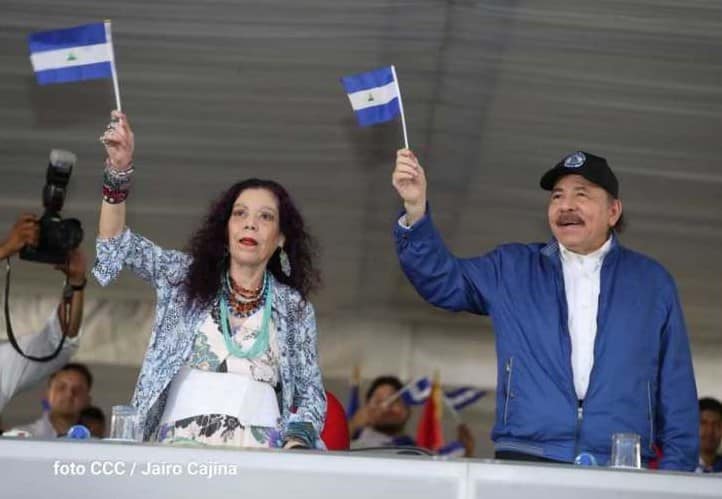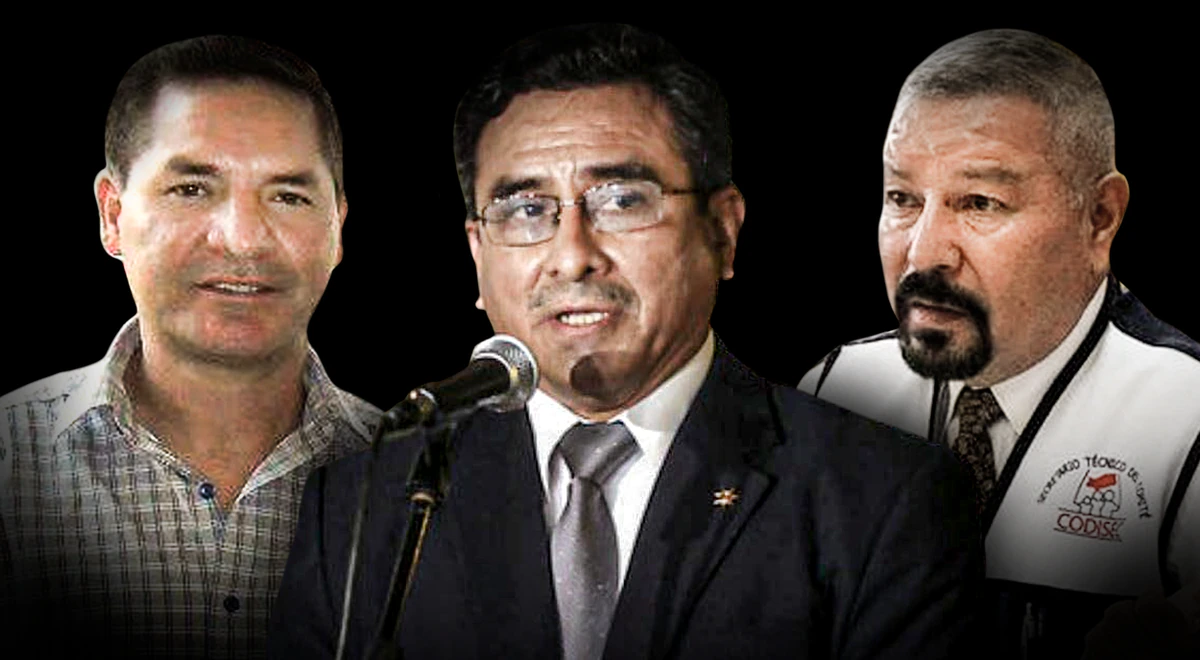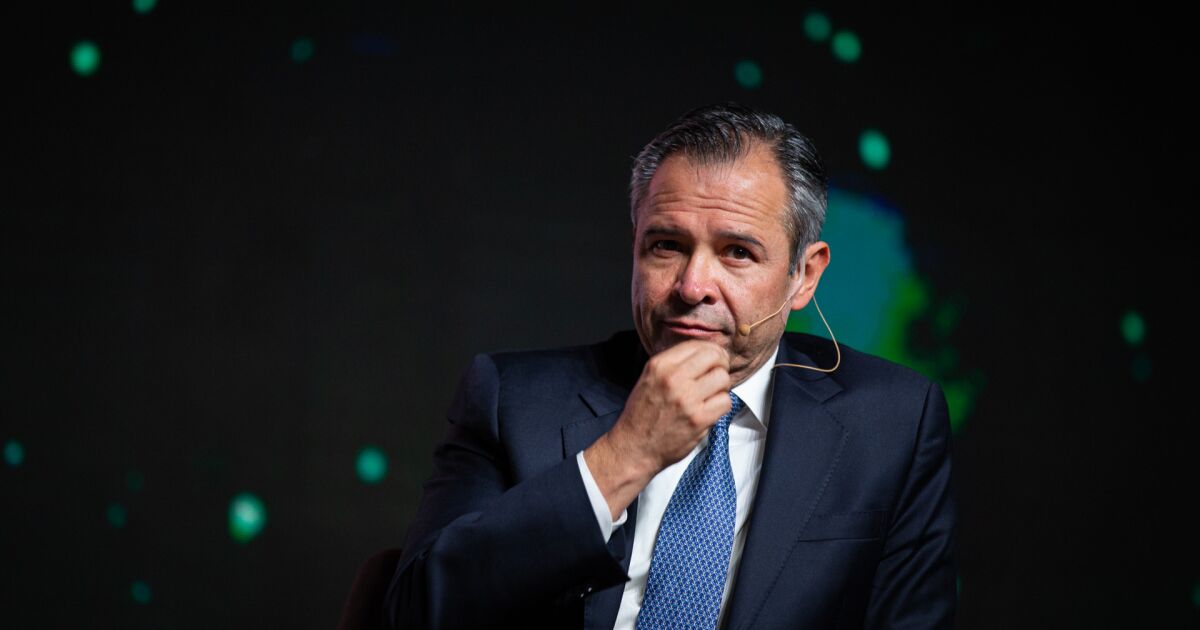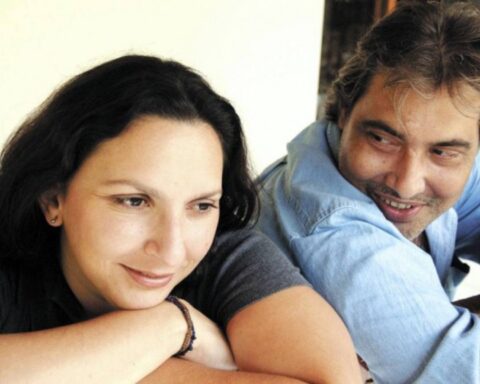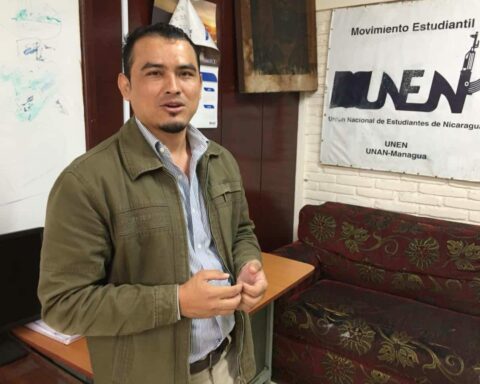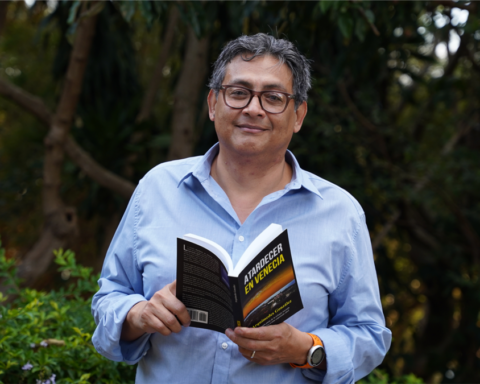The construction of the Interoceanic Canal “at some point will be a reality in Nicaragua,” said dictator Daniel Ortega, in a short speech he offered this September 14, at the official act of commemoration of the 166th anniversary of the Battle of San Jacinto. However, he kept silent about the international condemnations he has received in the last week for the constant human rights violations he has committed against Nicaraguans since 2018.
“The interoceanic canal will be a reality here in Nicaragua at some point. Why? because it is true that there is a canal through Panama, which has been expanded, but the demand for international traffic is so great that the canal through Nicaragua is necessary,” said Ortega.
In addition, he defended the project, assuring that it will be “for the people, for peace, for the greater development of the economy of our country and so that all our brothers who are watching us, in the cities, in the countryside, in the counties , in the communities, we can continue in peace, first guaranteeing the life of Nicaraguans, the health of Nicaraguans, from the elderly to the children, guaranteeing education for all Nicaraguan families.”
A failed project: Nine years and it has not been built
The Interoceanic Canal project that Ortega spoke about was approved in July 2012 by the National Assembly, with a Sandinista majority, which gave way to the “Law on the Legal Regime of the Great Interoceanic Water Canal of Nicaragua and the Creation of the Governing Institution, Authority of the Grand Canal of Nicaragua” and, a year later, to the concession of construction and administration of the project to the Chinese investor Wang Jing for a period of one hundred years.
The project has been nine years since it was officially announced in 2013, but no progress is known in its construction. Expert journalistic reports have criticized the project, calling it “failed” and reproaching the lack of application of a clause of the “Canal Framework Agreement”, which indicates that if the subprojects are not built within a period of six years, counting from when the work was made official, the Government could invoke the cancellation of the project.
In November 2021, according to a report by CONFIDENTIALChinese businessman Wang Jing, after being expelled from the Shanghai Stock Exchange, came out of the shadows to congratulate Ortega and his wife, Rosario Murillo, on their disputed reelection as president of Nicaragua.
In that same month he also sent a public letter addressed to Ortega, in which he assured that the company Hong Kong Nicaragua Canal Development Investment Co.; Ltd.also known as HKND Group, and he still have “faith in the grand canal project” in Nicaragua.
“The HKND Group and I firmly believe that under the leadership of President Daniel Ortega, Vice President Rosario Murillo and comrade Laureano Ortega, the Nicaraguan people will continue to promote the social progress and economic development of Nicaragua overcoming all difficulties along the way. The great Nicaraguan people and the great Chinese people will deepen the reestablishment of the fraternal historical friendship between the two, and Nicaragua will surely become an indispensable pivot along the strip and the road,” the Chinese businessman wrote.
Reports of CONFIDENTIAL They have documented that the approval of the canal law, with its threat to expropriate all property that was necessary, even if it was outside the area granted in concession, generated a wave of discontent that especially hit the peasant sectors, upon verifying that there was a risk of uprooting, to the point that they organized around a hundred marches against the initiative promoted by Ortega.
In recent years, the regime’s insistence on continuing with the project has led to, in addition to the loss of thousands of dollars annually allocated from the Republic Budget to the Nicaraguan Grand Canal Authority, the persecution of thousands of peasants, who now are exiled, imprisoned or in hiding in Nicaragua.
Ortega is silent in the face of international condemnations
In the three hours that the act commemorating the Battle of San Jacinto lasted, Ortega only got off the platform once, in which he protected himself from the rain that fell in Managua at around 6:00 pm He was accompanied by In less than ten minutes, students from different schools in the capital performed with rhythmic bands on Avenida Bolívar.
The dictator Ortega, in his 13-minute speech, devoted himself mainly to remembering historical facts and avoided referring to the reality of the country and, above all, to the recent international condemnations that his government received in the European Parliament and in the Human Rights Council of the United Nations Organization.
The European Parliament (EP), this September 15, will approve a resolution on the Nicaraguan situation“in particular the arrest of Bishop Rolando Álvarez”, in which —among other things— they will demand the immediate release of the religious leader and all the political prisoners of the regime of Daniel Ortega and Rosario Murillo.
The final resolution of the European Parliament is also expected to be “a message of support for the citizens of Nicaragua and the Catholic Church that is at their side.”
The MEPs, in their interventions during the debate, also demanded that —in the face of the constant abuses of the Ortega-Murillo regime— more sanctions be applied to the Ortega-Murillo regime. Some even mentioned the activation of the democratic clause of the Association Agreement (ADA) between the European Union (EU) and Central America, which would provoke the expulsion of Nicaragua from this free trade agreement.
On September 13, a group of 45 countries of the United Nations (UN) They denounced, through a joint letter, before the Human Rights Council of that organization, that in Nicaragua the Ortega-Murillo regime “has continued to repress the rights” and “freedoms” of Nicaraguans.
“Nicaragua has continued to repress the rights to the freedoms of peaceful assembly and association, and of religion; This year alone, it has canceled the legal personality of 1,112 human rights, development, professional associations, including medical associations, among others. Twelve universities have also seen their legal personality cancelled, impacting the right to education. The enjoyment of freedom of opinion and expression also worsened, with more journalists forced into exile, and due to the recent closure of 12 radio and television outlets of the Catholic Church, especially in Matagalpa”; points to part of the letter presented by the delegation of Ecuador on behalf of the 45 countries.
In addition, they called on the Nicaraguan authorities to “collaborate openly with human rights mechanisms, restore civic space, release all political prisoners, guarantee judicial independence, end politically motivated arrests and the repression of the media. independent as well as minorities, cooperate with the Office of the UN High Commissioner for Human Rights and implement its recommendations”.
The complaint by the group of countries occurred after the Office of the UN High Commissioner for Human Rights (Oacnudh) denounced before the Human Rights Council of that body that “the human rights situation in Nicaragua has progressively deteriorated since 2018, without that the Government has shown the political will to confront the crisis through dialogue and the implementation of recommendations formulated by human rights mechanisms.”

